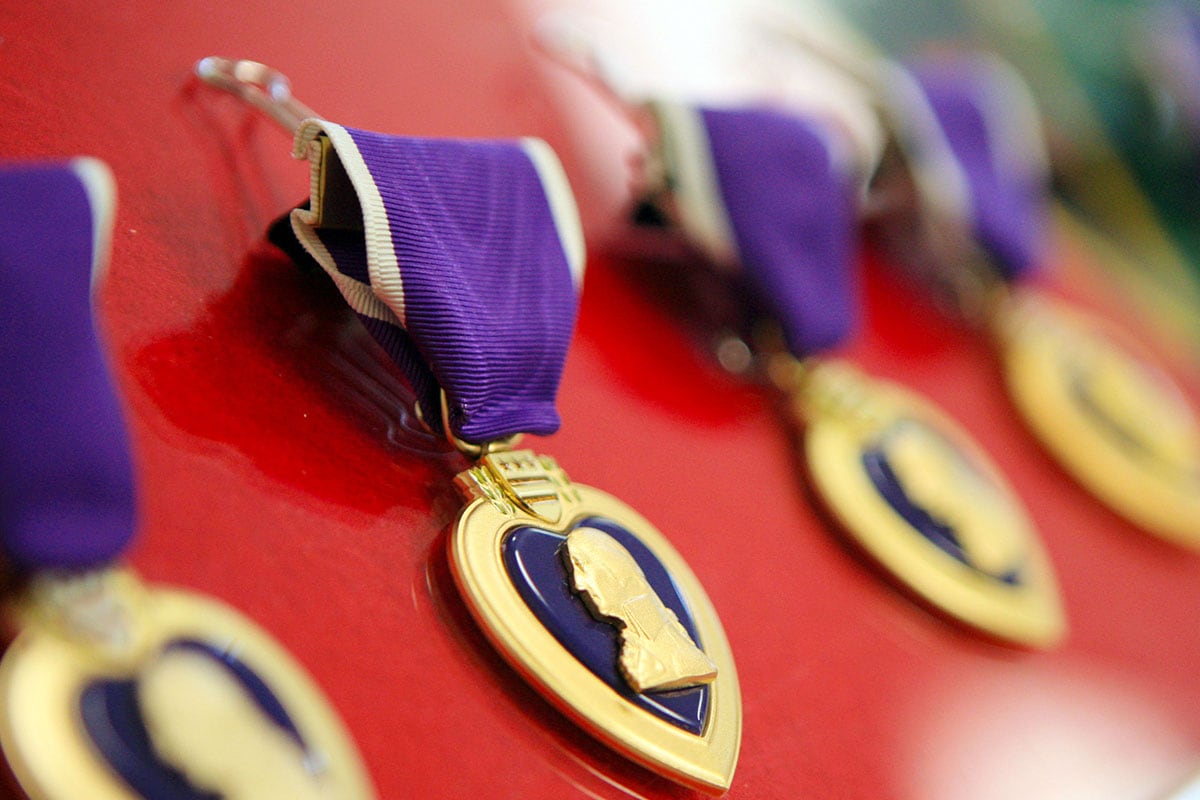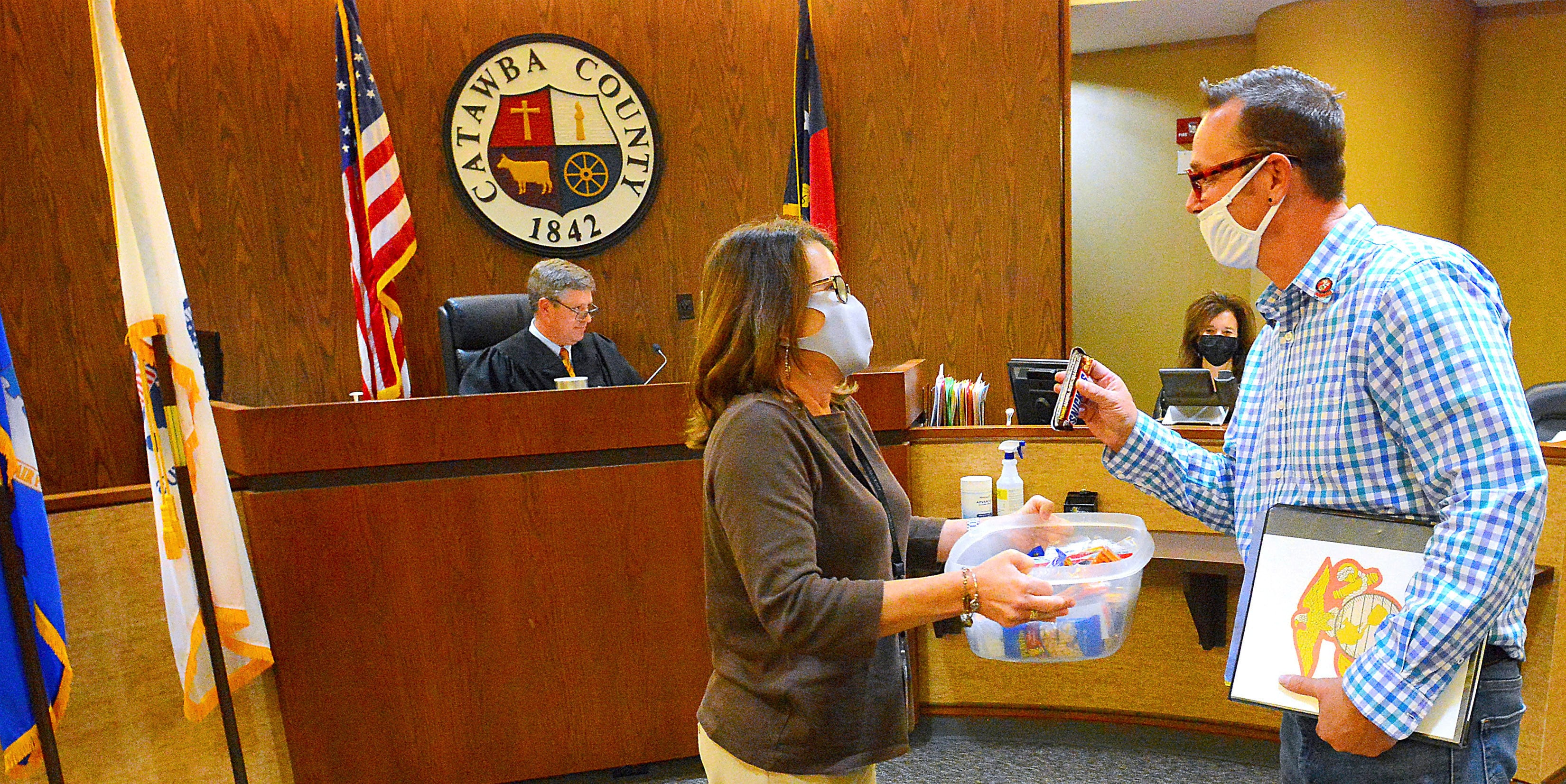For the last five years, Army veteran Alex Gallo and the Common Mission Project have been partnering with military officials to use teams of college students in solving a host of equipment and personnel challenges at the Defense Department.
Now the team wants to expand that idea to the rest of the world’s problems too.
“We’re doing programs on hacking for the oceans and the environment and hacking for climate and sustainability at five different universities already,” said Gallo, co-founder and executive director of CMP. “In society today, we solve too many problems in silos. This is a way to bring different groups together in a constructive problem solving process.”
The group’s Hacking For Defense program has drawn headlines in recent years for its unusual approach to Pentagon problems, with programs at more than 50 college campuses, including England.
RELATED

Teams of college students — would-be engineers, computer scientists, public policy specialists and more — work together for a semester on an issue presented by military partners, with the goal of finding outside-the-box solutions.
Recent topics tackled with help from the the National Security Innovation Network include developing anti-drone technology for special forces vehicles, improving portable batteries for personal battlefield use, and improving mental health support for military specialists facing higher rates of suicide.
Gallo, who served as an Army officer in Iraq, said the value of having individuals outside the military evaluate and propose answers to those problems is they aren’t limited by military preconceptions about what the solutions should be
“When we arrived in Kuwait before entering into Iraq, we got a lot of cool equipment,” he said. “And our soldiers tried it out in the desert. And when we went into Iraq, that stuff stayed in storage for an entire year.
“It was all solutions in search of problems. We had a ton of problems in Iraq that year, but none of what they gave us solved our problems.”
Students in the course (more than 500 have gone through the program so far) meet with front-line troops as well as military planners and leaders throughout the semester, to better understand the scope of the problems.
In one past project, Navy SEALs approached a class to help develop better health monitoring equipment for trainees, after several cases of hypothermia stalled training exercises.
Gallo said after extensive interviews, students determined the problem had less to do with trainees being unprepared for the elements than with insufficient navigation experience, which led to more time in colder temperatures trying to finish exercises. Instead of wearable health monitors, they recommended revamping how those skills were trained and tested.
“The SEALs also made it clear that any monitoring equipment they were issued was going to end up at the bottom of the ocean, which doesn’t solve the problem,” Gallo said.
Officials from the Common Mission Project said that over the last five years of the defense classes, they’ve seen changes in how defense officials approach problem solving, and more openness on behalf of commanders to listen to outside views to challenges they would have dealt with internally in the past.
RELATED

So Gallo said he wants to see if that bureaucratic turnaround can happen in other industries too.
Earlier this year CMP launched their new hacking programs, focused on issues like environmental sustainability, diplomacy and homeland security issues. The hope is that the lessons learned from the military partnerships can provide similar creative approaches to other social issues.
“People ask me ‘what problems do you want to work on?’ and I tell them that I want to work on them all,” he said. “This is about bringing more people into all of our problem solving processes.”
It’s also about showing future leaders more about social issues they hadn’t considered as part of their career paths. Gallo said a number of students in the Hacking For Defense courses had reservations about working directly with the military, only to take jobs after graduation in the industry because of newfound familiarity with the people and missions.
“And now we’re seeing some kids come into these courses as engineers, but leaving as environmentalists,” he said. “They recognize that the environment or defense or national security is in fact their life’s calling. And then they bring that new viewpoint into those problems.”
More information on the program is available on the Common Mission Project web site.
Leo covers Congress, Veterans Affairs and the White House for Military Times. He has covered Washington, D.C. since 2004, focusing on military personnel and veterans policies. His work has earned numerous honors, including a 2009 Polk award, a 2010 National Headliner Award, the IAVA Leadership in Journalism award and the VFW News Media award.





